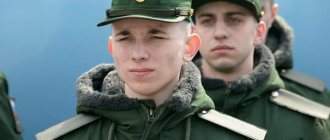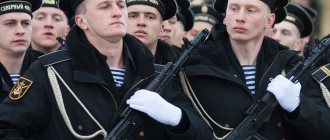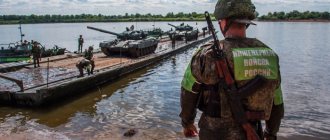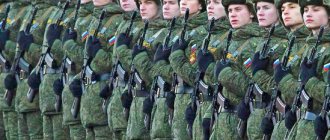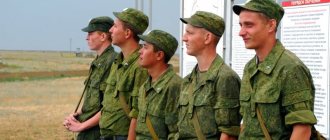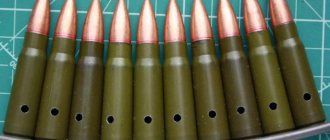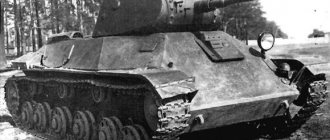Any future soldier, before joining the army, asks himself two questions: where is the best place to serve and how to get into the desired unit. To find out the answer to this question, you need to understand what goal you want to achieve when going to serve in the army.
Each conscript should decide whether he has certain skills and acquired knowledge in civilian life. When a soldier goes through the draft board, he will definitely be asked where he would like to serve. Then the military registration and enlistment office will make a note about the conscript’s preferences.
Military service
The entire segment of the population, male and of military age, is required to register with the military commissariat and undergo a medical examination to determine their fitness category.
If he is unfit, then a military ID is issued and the man either ends up in the reserves of the Russian army or is completely released from service.
In category G, the young person receives a deferment for valid reasons (study, treatment) for a period of 6 months or 1 year.
In category A, B, the conscript is sent to military service.
Everyone knows that in the absence of health problems, a soldier may have a chance to serve in Russia's elite troops. The concept of elite troops is not enshrined at the legal level, but they include those units of troops that are in full combat readiness every minute and with the greatest combat capability.
And if there are minor illnesses, a soldier will only be able to get into a certain type of army, depending on the specific problem.
Compulsory service lasts 12 months, during which a soldier can sign a contract and serve in the Russian army with the opportunity to make a military career.
When did the modern Russian army emerge?
After the collapse of the Soviet Union, the Russian army was formed on the basis of the Armed Forces of the former state in 1992. Before 1998, although army units participated in resolving the military conflict in Chechnya, there was no stable structure.
The reorganization made it possible to reduce the size of the regular army by half. And since 2001, conscripts’ service period becomes 12 months. Most of the military personnel are transferred to a contract basis. The structure of the army has changed since 2007, and recently regiments and divisions have returned again.
Which troops are better to serve in?
The structure of the Armed Forces in the Russian Federation is very diverse. Each conscript can get into the unit in which he can demonstrate his skills and abilities.
If a citizen has dreamed of joining the airborne troops or the Marine Corps since childhood, then he must do everything so that the military conscription commission assigns him to this unit: attend courses to obtain the skills needed in a particular army, have high physical fitness, tell the military registration and enlistment office about your desire.
However, specialists do not always listen to conscripts, so they can send them to places where there is not the slightest coincidence with where he wanted. In addition, a young man can be sent to serve from one side of the country to another or completely abroad; military service close to home is possible if there are compelling reasons.
Conscription service
The federal law obliges officials of organizations or educational institutions to provide citizens working or studying in these organizations or institutions with the opportunity to timely appear when summoned by the military commissariat for military registration. In practice, this provision of the law is implemented as follows. The heads of educational institutions, on days agreed upon with the military commissariat, orderly send students who have turned 17 or are turning 17 this year to the military commissariat, where activities related to their registration with the military are carried out. As for citizens who are not studying, upon receipt of a summons from the military commissariat, they are required to personally arrive at the military commissariat at their place of residence for initial military registration. Commissions for registering citizens for military registration are created in municipal districts, urban districts and in the intracity territories of federal cities by a decision of the highest official of a constituent entity of the Russian Federation (the head of the highest executive body of state power of a constituent entity of the Russian Federation) on the proposal of the military commissar. The commission includes: an official of the district military commissariat - the chairman of the commission; representative of the local administration; specialist in professional psychological selection; secretary of the commission; medical specialists. The main tasks of the commission are to organize a medical examination of citizens in order to determine their suitability for military service for health reasons, as well as to carry out measures for professional psychological selection of citizens to determine their suitability for training in military specialties. Medical examination of citizens subject to initial military registration is carried out in accordance with the Regulations on the military medical commission, approved by Decree of the Government of the Russian Federation of February 25, 2003 No. 123 “On approval of the Regulations on military medical examination”, Order of the Ministry of Defense of the Russian Federation and the Ministry of Health RF dated May 23, 2001 No. 240/168 “On the organization of medical support for the preparation of citizens of the Russian Federation for military service.” Medical examinations of citizens are carried out by specialist doctors: a surgeon, therapist, neurologist, psychiatrist, ophthalmologist, otolaryngologist, dentist, and, if necessary, doctors of other specialties. The personal composition of doctors - specialists - members of the commission and nursing staff, agreed with the head of the territorial health care management body, is approved by the decision of the head of the local government body. All citizens who are subject to initial military registration, before the start of a medical examination in the direction of the military commissariat, undergo diagnostic tests: fluorographic (x-ray examination of the chest organs in two projections, blood and urine tests. On the day of the examination, height and body weight are measured. Doctors Based on the results of a medical examination of citizens, specialists give an opinion on suitability for military service in the following categories:
- A - fit for military service;
- B - fit for military service with minor restrictions;
- B—limitedly fit for military service;
- G - temporarily unfit for military service;
- D - not fit for military service.
A citizen, based on the decision of the commission for military registration, can be sent to a medical organization for an outpatient or inpatient medical examination to clarify the diagnosis of the disease or for treatment. Upon completion of the medical examination (treatment) of the citizen, a health status examination report is drawn up. If it is possible to complete a medical examination (treatment) of a citizen before the end of the work of the commission for registering citizens for military registration, a specialist doctor issues a conclusion that the citizen needs a medical examination (treatment) indicating the deadline for appearing for a second medical examination. The Commission for Registration of Citizens for Military Registration organizes activities for professional psychological selection during the initial registration for military service. At the same time, measures of socio-psychological study, psychological and psychophysiological examination can be carried out in advance during the period of preparation for the initial registration of citizens for military registration at the military commissariat or educational institutions with the involvement of psychologists from these institutions. But the conclusion on the professional suitability of citizens for training in military specialties and training in military educational institutions and military training centers at federal state educational institutions of higher professional education is made directly upon their initial registration with the military. Upon completion of the initial registration of a citizen for military service, the commission must decide to register the citizen for military service or submit to the draft commission for consideration the issue of enlisting in the reserves of a citizen recognized as partially fit for military service, or the issue of releasing from military duty a citizen recognized as not fit for military service. At the same time, by the decision of the commission for registering citizens for military registration, all citizens who are subject to military registration and have passed the commission, living in the territory of the relevant municipality, regardless of the category of their suitability for military service for health reasons, including those sent decision of the commission for a medical examination. But in relation to citizens recognized as partially fit for military service due to health reasons, the commission decides to submit for consideration of the draft commission the issue of enrolling them in the reserve, and in relation to citizens recognized as unfit for military service - to submit for consideration of the draft commission the issue of releasing them from military service. In relation to citizens sent for a medical examination, a decision on suitability for military service is made after they have passed a medical examination and re-passed the commission for registering citizens for military service. The chairman of the commission or, on his behalf, the secretary of the commission are obliged to announce the decision of the commission to the citizen. On the day of passing the commission, he is given, under his personal signature, a certificate of a citizen subject to conscription for military service, in which the stamp of the military commissariat on military registration is affixed, and the rules of military registration and responsibility for violating them are explained, the procedure for preparing for conscription is explained service and a preliminary deadline for reporting to the military commissariat (at the recruiting station) to pass the draft commission. As a rule, the initial registration of citizens for military registration proceeds calmly and does not cause serious complaints against military commissariats from conscripts and their parents. However, in some cases, misunderstandings arise between the parents of conscripts and representatives of the commission for military registration. In our opinion, there are two main reasons for this. Firstly, poor knowledge of the legislation of the Russian Federation by conscripts, their parents, as well as employees of the military commissariat. And this gives rise, on the one hand, to unlawful demands on the employees of the military commissariat, and on the other hand, to the inability to substantiate the legality of their actions and decisions to conscripts. Secondly, the reluctance of military commissariat employees to listen carefully to the arguments of conscripts or their parents, patiently explain to them where they may be wrong, and if they are right, apologize and change their decision.
Questions:
- What to do if a conscript for some reason was unable to arrive at the military commissariat along with his classmates (fellow students), as well as in the case when he did not receive a summons from the military commissariat at all?
You must definitely try to arrive at the military commissariat within the deadlines indicated above and register for military service. This is, first of all, in your interests. The military commissariat, regardless of whether you are registered with the military or not, will still call you for events related to conscription when you turn 18 years old. And for you, the lack of a citizen’s certificate subject to conscription can create serious problems when entering an educational institution after graduation, as well as when getting a job. It should be remembered that the failure of a citizen who is required to be registered with the military to respond to a summons (summons) from the military commissariat without a good reason, according to Art. 21.5 of the Code of the Russian Federation on Administrative Offences, entails a warning or the imposition of an administrative fine in the amount of one hundred to five hundred rubles.
2. Can the interests of a conscript during his initial military registration be represented by his parents or any other representative by proxy?
The conscript has the right to have his own representative. In this case, the powers of the representative must be defined in a notarized power of attorney. It should be remembered that according to the Federal Law “On Military Duty and Military Service”, a citizen is obliged to personally arrive at the military commissariat at his place of residence for initial military registration. He must personally undergo a medical examination, and the decision of the commission on military registration must be announced to him personally.
3. Do I need to provide doctors with any medical documents when undergoing a medical examination? Do I need to undergo additional medical examination as directed by the military commissariat?
Necessarily. It is necessary to provide a medical record of the child's development. If you have undergone any medical examinations in specialized medical institutions, or were treated in a hospital, you need to submit medical documents with the results of the examination, fluoroscopic images, discharge summaries, etc., as well as photocopies of these documents. This will help the specialist doctor to fully and objectively assess your suitability for military service, and also, if necessary, refer you for additional medical examination or treatment. It should be remembered that evading a medical examination in the direction of the commission for military registration, according to Art. 21.6 of the Code of the Russian Federation on Administrative Offences, entails a warning or the imposition of an administrative fine in the amount of one hundred to five hundred rubles.
4. What should be done if a conscript does not agree with the conclusion of the medical commission?
A citizen may appeal the medical commission’s decision regarding his conclusion to a higher military medical commission, or to a district court. In addition, if a citizen disagrees with the result of a medical examination conducted as part of the work of the commission for registering citizens with military records, he also has the right to an independent military medical examination in the manner established by the Regulations on independent military medical examination, approved by a resolution of the Government of the Russian Federation Federation of July 28, 2008 No. 574 “On approval of the Regulations on independent military medical examination and on amendments to the Regulations on military medical examination.”
Is it possible to choose the direction of military service yourself?
According to generally accepted rules, during the conscription campaign, the young man will, of course, be asked about his wishes regarding the troops in which he would like to serve for military service, and based on his answer, a note will be made about his preferences. However, the distribution of newly minted soldiers does not particularly depend on their personal desires; they are mainly chosen by the so-called “buyers” who come to pick up the soldiers. Of course, there are times when a recruit's preferences are taken into account, due to compelling reasons or where the guy lives.
Another way to achieve being sent to serve in exactly the units you want is to present compelling arguments to the military commissariat. For example, if a young man wants to repay his debt to his homeland by serving as a military transport driver, it would be a good idea to take care of presenting a car license. It doesn’t matter whether the conscript manages to get into the military unit that he noticed or not, it’s still worth a try.
Unofficial troop ratings
Residents of Russia have formed a special rating of military units. Of course, it does not have official status, but, in most cases, it influences the choice of potential recruits. So, according to this list, at the very top are the marines and navy, special forces, reconnaissance, and border military units. These areas are in great demand and are considered elite. Men with excellent health and excellent physical shape get there.
Much less people want to serve in the army - in units of a construction battalion or internal troops. This is due to the specific conditions of military service in these military units; they are not suitable for everyone.
The choice is often influenced by the geographical location of the duty station. Many do not want or are afraid to go far from home, but there are also those who do not pay attention to the location of the unit and are guided by their dreams; these young people liable for military service make every effort to achieve their goal.
When deciding where to send a newly minted soldier, military commissariat employees are guided not only by the assigned fitness category, but also by the conscript’s possession of certain skills and his physical characteristics. If a guy suffers from seasickness, he certainly won't get into the navy. And tall guys will not be able to pay off their civic duty as tank crews or submariners.
Before voicing your wishes regarding the direction of military service, it is recommended to soberly assess your physical characteristics and make sure that everything is in order with your health.
Which troops are conscripts drafted into?
The Armed Forces of the Russian Federation (RF Armed Forces) are divided into three types: the Ground Forces (LF), the Navy (Navy) and the Aerospace Forces (VKS), which, in turn, have at their disposal various types of troops. The Strategic Missile Forces (RVSN) and the Airborne Forces (Airborne Forces) operate as independent branches of the military with their own command within the RF Armed Forces. All these types of troops in the conscript army are regularly replenished with a contingent of conscript soldiers as part of the annual spring and autumn conscription campaign.
Within the structure of the Ministry of Defense of the Russian Federation, compulsory military service is also possible in special logistics support troops: railway and military construction. In addition, some conscripts have the opportunity to serve in the structures of the Ministry of Emergency Situations (EMERCOM) and the Federal Service of National Guard Troops (FSVNG).
Ground troops
Like the vast majority of armies in the world, the Russian Ground Forces are the largest in composition. Accordingly, the need for conscript soldiers for the RF Armed Forces is the highest. In the structure of the Ground Forces there are the following types of troops:
- Motorized rifle troops;
- Tank forces;
- Rocket Forces and Artillery;
- Air Defense Forces;
- Corps of Engineers;
- Radiation, Chemical and Biological Defense Troops (RKhBZ);
- Signal Corps.
For all these troops, they take conscripts whose health may be in the average (drivers, crew members or crew members of military equipment, NBC protection specialists) and even minimal (signalmen, standard security of facilities) parameters.
Aerospace Forces
The Aerospace Forces includes various types of military aviation (strategic, army, bomber, attack, fighter, reconnaissance, military transport, special purpose), anti-aircraft missile forces, radio engineering and other specialized units designed to support the combat activities of formations and units.
In organizational terms, VKS are united by:
- Air Force (AF);
- Space Forces;
- Air and Missile Defense Troops (Air Defense-Missile Defense).
Recruitment of conscripts into the ranks of the Aerospace Forces is consistently carried out in all regions of Russia. Conscript service in the Air Force is traditionally popular among young people who want to connect their lives with aviation.
Navy
In the modern structure of the Russian Navy, the following military formations have been formed as branches of the military:
- Surface Forces;
- Submarine Force;
- Naval Aviation;
- Coastal troops (rocket and artillery troops, marines).
Many conscripts dream of purposefully joining the Navy. However, the selection into this branch of the Armed Forces based on health indicators is quite strict, especially in relation to the Marine Corps.
Airborne troops and special forces
Airborne troops and units of the Russian Armed Forces, intended to conduct reconnaissance and sabotage operations (as well as to counter such activities by the enemy) belong to special forces, which are usually called “special forces”. The main personnel of such forces serve on a professional basis, being contract soldiers or officers.
At the same time, conscripts with high levels of physical health and psychological stability have the opportunity to directly undergo military service in the Airborne Forces. For other special forces, direct recruitment of recruits is not practiced, but it is quite possible to get there if you have proven yourself well in the initial period of army (or navy in relation to the Marine Corps) service in training and combat units.
Prestigious troops for military service
The concept of “elite” troops does not have any official status supported by regulations. These include troops and special forces units, the very fact of service in which indicates the presence of special personal qualities - strength, agility, endurance, fighting skills, readiness for high risks and self-sacrifice. In addition to a very impressive military uniform, which especially distinguishes these troops from others, service in these troops is filled with intense training for physical endurance and the ability to survive in the most difficult conditions.
In the popular imagination, troops that are prestigious for military service are associated primarily with the greatest combat capability (such as the Airborne Forces, Marines, Special Forces), as well as with constant combat readiness in often difficult, remote service conditions (Navy, Strategic Missile Forces, Air Defense, Border Troops). In addition, well-known military units that have proven themselves to be the most careful selection of their personnel (the guard, the capital's Preobrazhensky and Semenovsky regiments, as well as the Presidential Regiment, structurally subordinate to the Federal Security Service) have high prestige.
Division of types of military service according to their functional purpose
In accordance with Article 2 “Military service. Military personnel" of Federal Law No. 53-FZ "On Military Duty and Military Service":
- Military service is a special type of federal public service.
Based on the nature of participation in solving the problems of defense and security of the country, military service can be subdivided:
- for military service intended to directly solve the problems of military security and defense of the country by military methods, and
- military service, intended to ensure the solution of tasks in the field of defense and security of the country by state authorities, federal executive authorities, troops and military formations.
Also, military service can be divided by type of military service, based on the criterion of departmental characteristics, i.e. by types of government organizations and bodies in which military service is performed. Federal Law No. 53-FZ “On Military Duty and Military Service” contains an exhaustive list of government bodies and organizations in which military service is performed.
This is how military personnel can perform military service:
- in the Armed Forces of the Russian Federation;
- in the troops of the National Guard of the Russian Federation (other troops),
- in rescue military formations of the federal executive body authorized to solve problems in the field of civil defense (military formations),
- Russian Foreign Intelligence Service,
- agencies of the federal security service,
- state security authorities,
- military prosecutor's office,
- military investigative bodies of the Investigative Committee of the Russian Federation;
- federal body for ensuring mobilization training of government bodies of the Russian Federation (bodies);
- military units of the federal fire service and
- in special formations created for wartime.
Clause 1 of Article 2 “Military service. Military personnel" Federal Law of March 28, 1998 No. 53-FZ (as amended on January 1, 2020) "On Military Duty and Military Service"
Military personnel performing military service in the specified government bodies and organizations are subject to a special status, which is determined by the Federal Law “On the Status of Military Personnel” and which employees of other government bodies do not have.
Thus, according to functional purpose, military service is divided:
- for direct military service and
- military service in government agencies.
Division of types of military service by composition of military personnel
Military service is also classified according to the composition of the military personnel:
- military service of soldiers, sailors, sergeants and foremen;
- military service of warrant officers and midshipmen;
- military service of officers.
This division of types of military service according to the composition of military personnel is established:
- Article 46 “Compositions of military personnel and military ranks” of Federal Law No. 53-FZ “On military duty and military service”.
In accordance with paragraph 1 of this article, the following composition of military personnel and military ranks are established in the Armed Forces of the Russian Federation, other troops, military formations and bodies:
| Compositions of military personnel | Military ranks | |
| military | ship | |
| Soldiers, sailors, sergeants, foremen | private, corporal, junior sergeant, sergeant, senior sergeant, sergeant major | sailor, senior sailor, 2nd class petty officer, 1st class petty officer, chief petty officer, chief ship's sergeant major |
| Ensigns and midshipmen | warrant officer, senior warrant officer | midshipman, senior midshipman |
| Officers: | ||
| junior officers | junior lieutenant, lieutenant, senior lieutenant, captain | junior lieutenant, lieutenant, senior lieutenant, lieutenant commander |
| senior officers | major, lieutenant colonel, colonel | captain 3rd rank, captain 2nd rank, captain 1st rank |
| senior officers | major general, lieutenant general, colonel general, army general | rear admiral, vice admiral, admiral, fleet admiral |
| Marshal of the Russian Federation | ||
Division of types of military service based on the grounds for enrolling citizens in military service
Based on the grounds for enrolling citizens in military service, the conditions and procedure for completing it, military service is divided into:
- for military service upon conscription;
- for military service under contract and
- for alternative civil service.
Clause 2 of Article 2 “Military service. Military personnel" Federal Law No. 53-FZ "On Military Duty and Military Service"
Military personnel performing military service under a contract include:
- officers;
- warrant officers and midshipmen;
- cadets of military educational institutions of professional education;
- sergeants, foremen, soldiers and sailors who entered military service under a contract.
Military personnel who are judges of military courts, employees of military court apparatus, as well as employees of the military prosecutor's office:
- undergo military service, taking into account the specifics established by legislative acts regulating the activities of military courts and the military prosecutor's office.
Military personnel serving under conscription include:
- soldiers, sailors, sergeants and foremen enlisted for military service by conscription;
- officers called up for military service from the reserves;
- cadets of military educational institutions of professional education before concluding a contract.
Features of conscript military service
The procedure for conscript military service is determined by:
- Article 36 “Military Service” of Federal Law No. 53-FZ “On Military Duty and Military Service”;
- Regulations on the procedure for military service, approved. Decree of the President of the Russian Federation of September 16, 1999 No. 1237 (as amended on December 31, 2019).
Conscripts perform military service in the Armed Forces of the Russian Federation, state security agencies and other troops.
Military personnel are sent to military formations and bodies for military service upon conscription:
- in accordance with the decree of the President of the Russian Federation after the filling of military positions, filled by military personnel undergoing military service by conscription in the Armed Forces of the Russian Federation, other troops and bodies indicated above.
All male citizens from 18 to 27 years of age who do not have a deferment or exemption from military service are required, according to the current legislation on conscription and military service, to undergo military service upon conscription in the Armed Forces of the Russian Federation.
As a rule, the following are called up for military service:
- citizens after graduating from school, college or university;
- Military conscription service currently lasts 1 year;
- after graduating or receiving higher professional education, a citizen can enter military service under a contract;
- in some cases established by law, conscription military service can be replaced by alternative civilian service, the duration of which is 2 years .
Rights of military personnel undergoing military service upon conscription:
- conscription military service can be combined with distance learning at a university or college;
- During the entire conscription service, military personnel are allowed to use mobile phones in their free time;
- once a month, military personnel undergoing conscription service, for whose service the commanders have no comments, can receive days off (severance leave), and, if necessary, up to 10 days of leave for family reasons;
- Relatives and friends are allowed to visit military personnel undergoing military service.
During conscript military service:
- military personnel are fed and provided with everything necessary - uniforms, personal hygiene items;
- They issue a bank card with free service, on which a monthly allowance is credited.
You can read more about the procedure for conscription into military service in the material “Military duty. Military service by conscription."
Features of military service under contract
In case if:
- a citizen has completed military service by conscription or
- received higher professional education and
- he is not yet 40 years old,
he can enter military service under a contract.
Contract for military service:
- may be concluded for a period of 2 or 3 years ;
- without experience of military service in primary military positions, a soldier’s salary, taking into account all allowances, can reach 60 thousand rubles per month.
After the end of the first contract for military service under the contract, the serviceman receives the right:
- for free education and
- obtaining a mortgage on preferential terms.
A serviceman can transfer to military service under a contract without waiting for the end of his conscription period:
- if a serviceman has completed higher or secondary vocational education, he can enter into a contract for military service under a contract 6 months after entering military service upon conscription;
- If a serviceman has a secondary general education or basic general education, it will be possible to conclude a contract for military service under a contract after 10 months .
More information about who can enroll in military service under a contract and how to do this can be found in the material “Military Service under a Contract.”
Peculiarities of conscripts performing alternative civil service
If conscription military service contradicts the conscript’s beliefs or religion, or he belongs to a small indigenous people, he is legally given the right to replace conscription military service with socially useful work - alternative civil service.
Federal Law of July 25, 2002 No. 113-FZ (as amended on June 27, 2018) “On Alternative Civil Service”
Alternative civil service:
- lasts from 18 to 21 months , and, as a rule, conscripts undergo it in hospitals, nursing homes, psychoneurological dispensaries and other social institutions;
- You can submit an application to replace conscript military service with alternative civilian service to your military registration and enlistment office no later than six months before conscription;
- the conscript cannot choose where exactly he will perform alternative civilian service, and the position he will occupy will be determined in accordance with his education and skills;
- During alternative civil service, the conscript receives a salary in accordance with the employment contract.
You can read more about the alternative civil service in the material “What is an alternative civil service.”
If you have any questions about the violation of your rights, or you find yourself in a difficult life situation, then an online duty lawyer is ready to advise you on this issue for free.
MILITARY SERVICE BY CONTRACT
What to choose?
When wondering where it is better to go to serve after receiving a summons to the army, you need to decide what goals are being pursued. All existing Russian troops have prestigious units. Those who served there are revered and respected, but they will have to give all their strength to withstand not only the moral, but also the physical stress during the training of soldiers.
Moreover, it is not always easy to join the ranks of these troops. During the selection process, the presence of good physical data, absence of health problems, endurance and strong psyche are welcomed.
The big advantage of prestigious units is the opportunity to gain quite useful skills. Learn to control weapons, master martial arts and other skills.
However, based on observations, we can conclude that conscripts are distributed among various types of troops, without taking into account their personal wishes. Every serviceman who comes to the military registration and enlistment office for assignment will praise his unit, since any unit requires good soldiers.
If a potential recruit has any specialties or useful skills, there will be no problems with him in terms of education and training during military service. After the newly minted soldier is sent to one of the military units, after taking the oath, he will be re-assigned among the platoons of the unit. During this event, much attention is paid to the abilities of the young person.
Before receiving the notification, it is better to prepare in advance in order to increase the chances of getting into a good unit. Recommended:
- Get your physical shape in order. Conscripts who can withstand considerable physical exertion are in demand in any army;
- Train endurance, discipline, emotional stability;
- Have special education. A soldier who has a profession is valued above others.
Recommendations for pre-conscription training
Preparing young people for military service includes a set of mandatory and voluntary activities.
The mandatory part involves obtaining basic knowledge of military affairs in educational institutions and training in army specialties according to the recommendations of the military registration and enlistment office. Voluntary activities include additional educational programs (including paid ones), military applied and other sports.
In every Russian city there are DOSAAF branches where they conduct pre-conscription training. Future soldiers can get a driver's license or try their hand at parachuting. The conscript's skills and abilities are reflected in his personal file and are carefully studied by representatives of military units.
The state places increased demands on military personnel. Military service has a huge impact on the formation of a man’s personality. Discipline and the ability to live in a team also help in everyday life.
The concept of military service and its types
1. Military service as a type of activity. A person carries out various types of activities. Depending on the goals, activities are carried out in the interests of private or personal, public, state or universal interests. One of the most important types of purposeful human activity is service.
As a type of social activity, service appeared in the system of social relations as a necessary condition for the normal functioning of society. Service activities cover the spheres of production, external relations, distribution of material and other benefits, security and law enforcement, as well as military affairs (military service).
The service is carried out both in state and non-state structures. The latter include, for example, public and religious associations. In the most general form, service can be defined as the professional activity of a certain contingent of individuals - employees in organizing the execution and practical implementation of the powers of state, public and other social structures.
State organizations (structures) are created (established and formed) by the state to implement state goals and functions. In the most general sense, these include government bodies, state enterprises and institutions and their associations, armed formations (Armed Forces, other troops and military formations). The civil service is designed to ensure and guarantee the implementation of the goals and functions of the state. At the same time, in which of the listed state organizations the service is considered state service is determined by the state.
Public service refers to the activities of persons in public positions to ensure the execution of the powers of state bodies, as well as activities in order to solve nationally significant problems using specific methods.
The civil service is intended, as a rule, to solve problems of public administration in various spheres of public life. However, not only the public administration service is state-owned, but also activities aimed at solving other problems and implementing state functions. State service is military service, service in internal affairs bodies, customs authorities, diplomatic service, civil service of Cossack societies, etc. At the same time, not all activities within the listed government organizations and bodies can be classified as public service. Thus, according to the Federal Law “On Defense”, the recruitment of the Armed Forces of the Russian Federation, in addition to military personnel, is carried out by persons from among the civilian personnel, some of whom are in the public service and are civil servants, i.e. holds, in accordance with the Federal Law “On the Fundamentals of the Civil Service of the Russian Federation” dated July 31, 1995 N 119-FZ, public positions in the civil service.
Public service is also considered to be service in various specialized industries and areas, the regulation of which is usually systemic, covering service in bodies of all levels or the industry (sphere) as a whole.
In addition to a number of state bodies included in the state apparatus, military service is provided for in organizations specially created by the state - troops and military formations, which are not directly included in the state apparatus, but are called upon to solve special problems and implement functions in the field of defense and military security.
The solution of the tasks of defense and military security by the military organization of the state using specific military methods presupposes a special procedure for the functioning of its constituent state bodies and organizations and the fulfillment of the duties of the people they unite through the performance of military service. The state determines the need for military service in one or another of its institutions, based on the goals of defense and military security and the need to use military methods to achieve them.
Military service as a specific type of activity is characterized by the following features:
- it is carried out in a specific organization established by the state - the military organization of the state (sometimes it is called the army, armed force, army);
- the state determines the procedure and conditions for entering (attracting) into the military organization of the state, staying in it and leaving it;
- the military organization of the state is intended to participate in military operations (war or other armed confrontation) by military methods, involving the use of means of armed struggle;
- the state determines the internal structure of a military organization, the procedure for managing it, appoints its leaders and establishes the differences between its members and the rest of the country's population.
However, not all activities with weapons in hand constitute military service. Otherwise, the participation of persons, for example, in illegal armed groups, could also be classified as specified specific activity. This activity must be authorized in a normative manner by the state authorities, in Russia - by the federal state authorities.
On the other hand, not every state-authorized activity with weapons in hand is military service. In the Russian Federation, in order to perform their official duties, employees of internal affairs bodies, the penal system and a number of other organizations have the right to carry weapons and, in legally defined cases, to use them. For example, internal affairs officers have the right to constantly carry and store service weapons, which they have the right to use to protect citizens from an attack dangerous to their life or health, to repel an attack on a police officer when his life or health is in danger, as well as to suppress an attempt to seize his weapon, to free hostages and in other cases specified in Art. 15 of the Law of the Russian Federation “On the Police” of April 18, 1991 N 1026-1.
The key to defining the concept of military service is its intended purpose, i.e. what it is intended for, as well as an indication of the possibility of using special (combat) means and methods.
Military service is a complex social and legal phenomenon. It forms the basis for the activities and functioning of the Armed Forces, other troops, military formations and bodies included in the military organization of the state, and covers millions of citizens of the Russian Federation.
The activities of military personnel are of a state nature. Therefore, it has all the basic properties of the civil service: activity within government organizations and bodies; military personnel, performing specific tasks in accordance with the functions legally assigned to state bodies, act on behalf of and in the interests of the state and society as a whole; relationships between military personnel are built on the basis of relations of power and subordination characteristic of the civil service; the legal status of military personnel, the procedure for performing and completing military service are determined by the state.
Since military service is established in organizations that solve problems in the field of military security of the state, it is a type of public service. At the same time, being a type of civil service, military service has extremely pronounced specificity, which sometimes excludes direct parallels and analogies with the content of the concepts of “civil service” and “civil servant” enshrined in the federal laws “On the Fundamentals of Civil Service of the Russian Federation” dated July 31, 1995 N 119-FZ, “On the civil service system of the Russian Federation” dated May 27, 2003 N 58-FZ, which is explained not so much by the imperfection of the legislation on military service and the presence of gaps in it, but by its purpose and resulting from this is a special procedure for entering military service, completing it and ending it.
The civil service is uniform in its legal nature and different in the tasks it solves. From this follows the need for its differentiation according to various areas of state activity and, accordingly, its division into types. The type of public service is understood as its specialization, which, in turn, is determined by the level, goals and functions of the relevant government bodies and organizations and is derived from them.
The public service includes a service that solves nationally significant tasks: defense, security, public order, i.e. tasks that are solved in the interests of the entire state and without the solution of which its existence is unthinkable. The institution of public service in Russia is in the process of reform.
Military service as a type of federal public service is characterized by the following features:
— it is performed in order to preserve state sovereignty and territorial integrity, as well as to perform a number of other functions assigned by the Constitution of the Russian Federation to the exclusive jurisdiction of the Russian Federation;
- financing of state bodies and organizations that provide for military service comes only from the federal budget;
— legal regulation of military service is carried out only by federal legislation, as well as regulatory legal acts of the President and the Government of the Russian Federation and regulatory legal acts of federal executive authorities. Thus, the status of military service is determined only by federal legislation and the possibility of its introduction in state bodies and organizations of the constituent entities of the Russian Federation is excluded.
Thus, military service is a special type of human activity established by the state on the basis of federal law in state organizations (troops, military formations) specially created by it and bodies that solve problems in the field of defense and military security using specific (military) methods in order to prepare for armed protection and defense of the Fatherland.
2. Functions of military service. Through the performance of military service, the functions of individual state bodies and organizations created in order to ensure state sovereignty and integrity of the Russian Federation are realized. At the same time, the peculiarity of military service is that it is not always possible to determine in advance the algorithm of actions of military personnel due to the specifics of their activities, which are sometimes extremely dynamic in nature, which is especially typical during combat operations. However, the conduct of combat operations is subject to certain laws, which are the task of military science, not legal science, to find out and formalize in the form of combat regulations and other acts of military control.
The preservation of state sovereignty and integrity of the Russian Federation is achieved by various means, including the establishment of the constitutional duty of citizens to defend the Fatherland. The Constitution of the Russian Federation proclaims: “Defense of the Fatherland is the duty and responsibility of a citizen of the Russian Federation” (Clause 1, Article 59). Citizens can fulfill their duty to protect the Fatherland by providing the material resources necessary to organize the defense of the country (payment of general and special taxes, motor transport, horse-drawn, ship, housing duties), working on the construction of defense structures, at defense enterprises, etc.* (106) However, the main forms of protecting the Fatherland in peacetime is the military duty of citizens, which involves, in particular, military service upon conscription, and the fulfillment of the constitutional duty to protect the Fatherland through voluntary enlistment in military service.
The main purpose of military service is the practical implementation of the functions of the state to ensure its independence, state sovereignty and integrity, satisfying public interest in the field of military security on the basis of the principles and provisions established in the Constitution of the Russian Federation and federal laws.
Military service is organized to solve the problems of the state, to carry out its functions and the functions of state bodies and organizations.
What is the relationship between the functions and tasks of military service? The tasks and functions of military service are correlated and closely interrelated concepts, but do not coincide. The tasks of military service have an initial meaning in relation to its functions and are their immediate prerequisite. In turn, the functions of military service represent a means of realizing and fulfilling its tasks. The tasks of military service are realized through the implementation of its functions. As a rule, the legislation defines the tasks of state organizations and bodies and their powers, and the functions are determined at the level of subordinate legal regulation.
The functions of the state are performed by all state bodies that exercise state power. The functions of the state to ensure the integrity and state sovereignty are assigned to both state bodies and state organizations that provide for military service: the Armed Forces, other troops, military formations and some state bodies. These functions are enshrined in the subjects of the exclusive jurisdiction of the Russian Federation, listed in Art. 71 of the Constitution of the Russian Federation, and the corresponding functions of state organizations and bodies entrusted with the implementation of their jurisdiction.
Civil service in the modern sense comes down to the performance of the functions of public administration, considered in a broad sense, i.e. as a management activity in the system of executive, representative and judicial power. Military service performs the functions of the state itself - ensuring its sovereignty and territorial integrity: defense, security, border protection, public order, etc. The functions of the civil service exhaustively implement the Constitution and laws, ensuring the interests of politics and the unity of state power of the Russian Federation.
Articles 3 and 4 of the Constitution of the Russian Federation establish functions for the civil service in terms of extending the sovereignty of the Russian Federation to the entire territory, ensuring the integrity and inviolability of the territory of Russia, the supremacy of the Constitution of Russia and federal laws throughout the entire territory of the Russian Federation. The named functions, including also the functions of countering the appropriation and seizure of power in the Russian Federation or the appropriation of power and ensuring the legal prosecution of those who committed such acts, can be attributed to the constitutional protective functions (or functions of protecting the constitutional system) of the civil service, which in each type of civil service ( for example, military) is implemented in a special form.
At the same time, one should not equate the functions of the state with the functions of the civil service. State organizations and bodies, in accordance with their place in the state mechanism and political system, have their own functions that implement their competence, rights and responsibilities, which, together with the implementation of functions by other structural elements of the state apparatus, lead to the implementation of the functions of the state.
The functions of the civil service are understood as independent and relatively separate main types of public service actions, such as, for example, law enforcement, law-making, human rights, regulatory and organizational. These functions are only a part, but an essential one, of the functions carried out by government bodies. The functions of the civil service are determined by objective laws. The content of each is predetermined by the goals facing the state, the characteristics of public service powers and the scope of activity of civil servants. The civil service solves the problems of the state, performs its functions and the functions of state bodies through the implementation of state management activities.
The managerial aspect is characteristic, in particular, for government organizations and bodies that provide for military service. Thus, the management of the Armed Forces of the Russian Federation is carried out by the Minister of Defense and the General Staff of the Armed Forces of the Russian Federation, which is the main body for their operational management * (107). The Main Command of the Internal Troops of the Ministry of Internal Affairs of Russia controls the internal troops that are part of the system of the Ministry of Internal Affairs of the Russian Federation * (108). Consequently, military service in state organizations and bodies in which it is provided for by law is a systemic phenomenon, consisting of a control and controlled subsystem. Moreover, management is carried out both at the federal level, through a specially created federal executive body, and in the managed system itself through specially created management bodies, which in the Armed Forces of the Russian Federation are called military command and control bodies.
The general functions of military service include:
— implementation of the state personnel policy and recruitment of the Armed Forces, other troops, military formations and bodies, taking into account the abilities and professional qualities of military personnel and civilian personnel;
— formation and maintenance of a list of military positions, as well as a register of government positions in the civil service from among civilian personnel;
— organization of military service and civil public service of civilian personnel;
— establishment of social and legal conditions and guarantees necessary for the activities of military personnel and civilian personnel of government bodies and organizations that provide for military service;
— planning and forecasting the development of military service;
— organization and methodological management of professional training, retraining (requalification), advanced training and internship of military personnel;
— establishing requirements for government positions and qualification requirements for military personnel;
— control over the activities of military personnel, analysis of the status and effectiveness of their official activities;
— coordination of activities to implement tasks that arise from regulatory legal acts regulating public-service and military-service relations;
— coordination of the development of draft regulatory legal acts on the organization of military service;
- other functions that can be reduced to the general functions of the civil service (law enforcement, law-making, human rights protection, regulatory, organizational, etc.), i.e. management functions.
The specific functions of military service reflect the specifics of the activities of military personnel of all government organizations and bodies that provide for military service. It is reflected in the responsibilities assigned to them. Military personnel are entrusted with responsibilities for preparing for armed defense and armed defense of the Russian Federation, which are closely related to the need to unquestioningly carry out assigned tasks in any conditions, including at risk to life (Clause 2 of Article 1 of the Federal Law “On the Status of Military Personnel”) . The activities of military personnel are reflected in the performance of specific duties of military service, such as, for example: participation in hostilities, performing tasks in conditions of emergency and martial law, as well as in armed conflicts; carrying out combat duty, combat service, service in a garrison outfit, performing duties as part of a daily outfit; participation in exercises or ship voyages, etc.
In the field of defense and military security, the military service carries out the following functions: ensuring sufficient defense capability and military security of the state; fight against terrorism; establishment and maintenance of border regime, protection of the State Border, etc.
Thus, the peculiarity of military service consists in the performance by military personnel of specific functions related to the use or possibility of using means of armed struggle, in order to solve by state bodies and organizations tasks in the field of defense of the Fatherland (defense and military security), assigned to them in a regulatory manner.
Since specific functions are concretized in the activities of military personnel of various government bodies and organizations, we can talk about the special functions of military service, reflecting the characteristics of the activities of military personnel during military service in these government bodies and organizations.
Thus, military personnel of the internal troops of the Ministry of Internal Affairs of Russia operating as part of formations and military units for operational purposes, special motorized formations and military units are entrusted with:
— participation, together with internal affairs bodies, in localizing and blocking areas of emergency or areas of armed conflict, suppressing armed clashes in these areas and separating warring parties, in confiscating weapons from the population, in carrying out measures to disarm illegal armed groups, and if they provide armed resistance - in their elimination;
— participation, together with internal affairs bodies, in taking measures to strengthen the protection of public order and public safety in areas adjacent to areas of emergency or areas of armed conflict;
— participation in suppressing riots in populated areas, and, if necessary, in correctional institutions;
— participation, together with internal affairs bodies, in protecting public order through patrol and guard duty in populated areas, as well as in ensuring public safety during public events and solving other problems * (109).
Military service, from a functional point of view, represents independent and relatively isolated types of actions of subjects of military-service relations for the purposes of the practical activities of state organizations and bodies in which it is provided for by law.
Due to the diversity of military service activities with varying scope of powers and tasks performed in various government organizations and bodies in which it is provided for by law, there are different types of military service.
3. Types of military service. The type of military service is understood as its specialization, which is determined by the tasks and functions of state organizations and bodies, and is derived from them. Specialization is realized in the activities of exercising the powers of individual government bodies and performing special tasks by individual government organizations endowed with special competence for this purpose, which determines the characteristics of the legal status and actual activities of military personnel.
Military service members perform military service in the Armed Forces, Border Troops of the Federal Security Service of the Russian Federation, in the internal troops of the Ministry of Internal Affairs of the Russian Federation, in the Railway Troops of the Russian Federation, civil defense troops, as well as engineering, technical, road construction military formations under the federal executive bodies authorities and special formations created for wartime. The main functional purpose of the troops is the direct implementation of state functions for the purposes of military security and state defense, associated with the need to prepare for and conduct combat operations.
According to the criterion of participation in solving problems of defense and security, military service can be divided into a service intended to directly solve problems of military security and state defense by military methods, and a service intended to ensure the solution of problems in the field of defense and security by government bodies, federal executive bodies authorities, troops and military formations. The military organization of the latter is necessary, since the tasks they solve for defense and security purposes can also be carried out as a result of the use of military methods and means of armed struggle.
Military personnel also perform military service in certain state bodies: the Foreign Intelligence Service of the Russian Federation, bodies of the Federal Security Service of the Russian Federation, federal state security bodies, the federal body for ensuring mobilization training of state authorities of the Russian Federation.
The functional purpose of state bodies that provide for military service is to ensure the powers of the highest bodies of state power in order to solve problems in the field of defense and security, for which these bodies are endowed with special competence.
The Federal Law “On Military Duty and Military Service” contains an exhaustive list of government bodies and organizations in which military service is performed. For citizens undergoing military service in them, i.e. military personnel are subject to a special status, which is determined by the Federal Law “On the Status of Military Personnel” and which employees of other government bodies do not have. Thus, according to its functional purpose, military service is divided into military service and service in government bodies.
Military service is carried out in accordance with current Russian legislation as a result of voluntary entry into it under a contract and the implementation of military duty - conscription. Consequently, military service, according to the method of entering military service and the order of its completion, is divided into military service by conscription and military service by contract. Based on the grounds for enlistment in military service, the conditions and procedure for its completion, military personnel are united into two groups (categories): military personnel undergoing military service under a contract, and military personnel undergoing military service by conscription.
Military service is classified according to its forms: military service of soldiers, sailors, sergeants and foremen; military service of warrant officers and midshipmen; military service of officers. This classification is based on the composition of military personnel established by the Federal Law “On Military Duty and Military Service” (Article 46) depending on the level of military (military special) training, the nature of the positions held, and existing military ranks.
Military service is also classified according to departmental characteristics, i.e. types of government organizations and bodies in which military service is performed.
